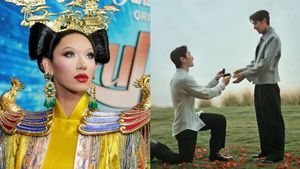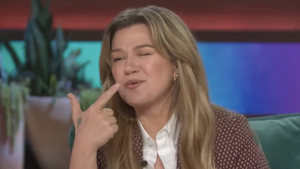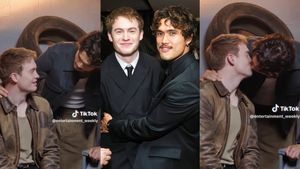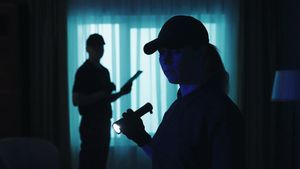The Kentucky Supreme Court has dismissed -- on a technicality -- a lawsuit brought against a shop that refused to print T-shirts for Lexington's 2012 Pride Festival.
"The court sidestepped debates over civil rights and the freedoms of religion and speech by ruling on a legal technicality, that the party that brought the claim -- the Gay and Lesbian Services Organization -- lacked the statutory standing to do so because it was not the party denied service by the business," the Lexington Herald-Leader reports.
The party who was denied service by Hands On Originals has not been identified, but that person is the one who should have brought the complaint, the court ruled Thursday. It was the Gay and Lesbian Services Organization, as sponsor of the Pride Festival, that filed a complaint with the Lexington Human Rights Commission.
The Human Rights Commission in 2014 found the shop had violated Lexington's Fairness Ordinance, which bans discrimination based on sexual orientation, in refusing to print the T-shirts. Blaine Adamson, the co-owner and manager, said his conservative Christian beliefs prevented him from doing providing goods bearing a pro-LGBTQ message. The commission did not impose a fine on the store, but it ordered Hands On to cease discrimination and provide sensitivity training for its staff.
The Fayette Circuit Court overturned that decision on appeal in 2015, finding that the refusal was based not on the customer's identity but on the message the shirts would convey, and that his constitutional rights to freedom of speech and religion allowed him to reject work that would send that message. The Kentucky Court of Appeals upheld that decision, so the Human Rights Commission went to the state Supreme Court.
Adamson and his lawyers, from the anti-LGBTQ Alliance Defending Freedom, had argued again in the Supreme Court that his objection was based on the message of the shirts, not the customer's orientation. But, as the Herald-Leader observed, the court chose not to deal with that issue.
"While this result is no doubt disappointing to many interested in this case and its potential outcome, the fact that the wrong party filed the complaint makes the discrimination analysis almost impossible to conduct, including issues related to freedom of expression and religion," Justice Laurance VanMeter wrote for the court majority.
One justice, David Buckingham, did address the discrimination issue in a concurring opinion. The Human Rights Commission, he wrote, "went beyond its charge of preventing discrimination in public accommodation and instead attempted to compel Hands On to engage in expression with which it disagreed."
"When expression is involved, whether a parade organizer, a newspaper or a t-shirt company, a publisher may discriminate on the basis of content, even if that content relates to a protected classification," Buckingham continued.
Even though the court majority did not weigh in on the right to discriminate, the ADF did consider the Thursday ruling a victory. "Today's decision makes clear that this case never should have happened," Jim Campbell, senior counsel for the ADF, told the Herald-Leader.
"For more than seven years, government officials used this case to turn Blaine's life upside down, even though we told them from the beginning that the lawsuit didn't comply with the city's own legal requirements," Campbell added. "The First Amendment protects Blaine's right to continue serving all people while declining to print messages that violate his faith. Justice David Buckingham recognized this in his concurring opinion, and no member of the court disagreed with that."
The ADF has represented many other businesses that have declined service to LGBTQ people because of religious objections, including Masterpiece Cakeshop owner Jack Phillips, who was sued over his refusal to create a wedding cake for a same-sex couple. His case went all the way to the U.S. Supreme Court, which ruled that the Colorado Civil Rights Commission had erred in finding him in violation of the state's antidiscrimination law because it had not shown sufficient respect for his religious beliefs. The high court, however, did not establish a broad right to discriminate.
Whether the Human Rights Commission will take its case further, including whether it will appeal to the U.S. Supreme Court, remains to be seen. Executive Director Raymond Sexton told the Herald-Leader he is reviewing the state Supreme Court's decision and that any additional action would have to be discussed at the commission's next meeting.


















































































